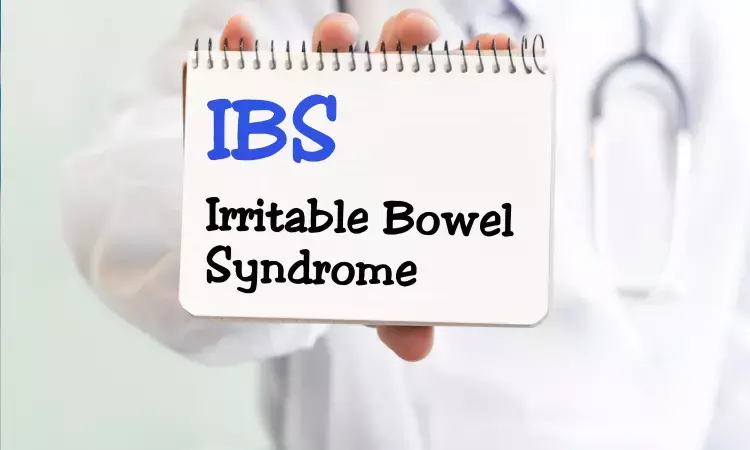- Home
- Medical news & Guidelines
- Anesthesiology
- Cardiology and CTVS
- Critical Care
- Dentistry
- Dermatology
- Diabetes and Endocrinology
- ENT
- Gastroenterology
- Medicine
- Nephrology
- Neurology
- Obstretics-Gynaecology
- Oncology
- Ophthalmology
- Orthopaedics
- Pediatrics-Neonatology
- Psychiatry
- Pulmonology
- Radiology
- Surgery
- Urology
- Laboratory Medicine
- Diet
- Nursing
- Paramedical
- Physiotherapy
- Health news
- Fact Check
- Bone Health Fact Check
- Brain Health Fact Check
- Cancer Related Fact Check
- Child Care Fact Check
- Dental and oral health fact check
- Diabetes and metabolic health fact check
- Diet and Nutrition Fact Check
- Eye and ENT Care Fact Check
- Fitness fact check
- Gut health fact check
- Heart health fact check
- Kidney health fact check
- Medical education fact check
- Men's health fact check
- Respiratory fact check
- Skin and hair care fact check
- Vaccine and Immunization fact check
- Women's health fact check
- AYUSH
- State News
- Andaman and Nicobar Islands
- Andhra Pradesh
- Arunachal Pradesh
- Assam
- Bihar
- Chandigarh
- Chattisgarh
- Dadra and Nagar Haveli
- Daman and Diu
- Delhi
- Goa
- Gujarat
- Haryana
- Himachal Pradesh
- Jammu & Kashmir
- Jharkhand
- Karnataka
- Kerala
- Ladakh
- Lakshadweep
- Madhya Pradesh
- Maharashtra
- Manipur
- Meghalaya
- Mizoram
- Nagaland
- Odisha
- Puducherry
- Punjab
- Rajasthan
- Sikkim
- Tamil Nadu
- Telangana
- Tripura
- Uttar Pradesh
- Uttrakhand
- West Bengal
- Medical Education
- Industry
Acupuncture safe for managing Diarrhea-Predominant irritable bowel syndrome: JAMA

China: A recent original investigation published in JAMA, Gastroenterology and Hepatology have concluded that acupunctures are feasible and safe for managing Diarrhea-Predominant irritable bowel syndrome.
Acupuncture is a promising treatment strategy for managing irritable bowel syndrome (IBS). Previous studies have shown beneficial effects, and the mechanisms involved are related to reducing visceral hypersensitivity and modulation of the gut-brain axis.
IBS clinical trials have high placebo response rates while choosing the subjective scale as the primary endpoint. As mentioned, trials should adhere to current US FDA–recommended composite endpoints for IBS, and it causes lower placebo response rates.
Considering this background, Qi et al. and colleagues did a study to preliminarily test the feasibility of using FDA-recommended endpoints to evaluate acupuncture efficacy for treating IBS. The researchers also investigated the comparison in a patient receiving specific acupoint (SA), Nonspecific acupoint (NSA) and nonacupoint (NA) treatment.
The study summary is as follows:
- Patients had a mean age of 34.5 years and a history of IBS with diarrhoea (IBS-D).
- There were 36 women, and 54 men enrolled in the study.
- The trial was conducted at four tertiary hospitals in China.
- There were three groups in the study 2 acupuncture groups (SA and NSA) and a sham acupuncture group( NA).
- There were 90 patients randomized in the study in a ratio of 1:1:1
- All patients received twelve 30-minute sessions over four consecutive weeks at three sessions per week.
- The primary outcome measured in the study was the response rate at week four of worst abdominal pain [score range, 0-10, 0 no pain and 10, unbearable severe pain] decreased by30%, and the number of type 6 or 7 stool days decreased by 50% or greater.
- The primary outcomes improved for all groups with composite response rates in the SA group, NSA group and NA group as of 46.7%, 46.7% and 26.7%.
- The difference was not statistically significant.
- The adequate relief response rate at week 4 was 64.3%, 62.1 %and 55.2 % in the SA, NSA, and NA groups.
- Adverse events were reported in 2 patients, constituting 6.7% in the SA group and three patients constituting 10% in NSA or NA group.
To conclude, there were improvements recorded in IBS-D symptoms with Acupuncture in both the SA and NSA groups. Acupuncture is feasible and safe; however, researchers have highly pointed out the requirements of the trial needed to assess efficacy accurately.
Further reading:
Qi L et al. Acupuncture for the Treatment of Diarrhea-Predominant Irritable Bowel Syndrome: A Pilot Randomized Clinical Trial. JAMA Netw Open. 2022;5(12):e2248817. doi:10.1001/jamanetworkopen.2022.48817
BDS, MDS in Periodontics and Implantology
Dr. Aditi Yadav is a BDS, MDS in Periodontics and Implantology. She has a clinical experience of 5 years as a laser dental surgeon. She also has a Diploma in clinical research and pharmacovigilance and is a Certified data scientist. She is currently working as a content developer in e-health services. Dr. Yadav has a keen interest in Medical Journalism and is actively involved in Medical Research writing.
Dr Kamal Kant Kohli-MBBS, DTCD- a chest specialist with more than 30 years of practice and a flair for writing clinical articles, Dr Kamal Kant Kohli joined Medical Dialogues as a Chief Editor of Medical News. Besides writing articles, as an editor, he proofreads and verifies all the medical content published on Medical Dialogues including those coming from journals, studies,medical conferences,guidelines etc. Email: drkohli@medicaldialogues.in. Contact no. 011-43720751


